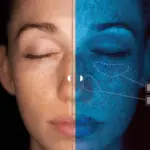Hives (Urticaria)
Home » Conditions » Hives (Urticaria)
Hives Can Be Limiting
Not sure about your condition? Get in touch now, there is no reason for you to wait.
Award winning dermatology service, with over 20 years of experience
Short waiting lists, on some occasions offering same week appointments
Safe environment, in Care Quality Commission approved facilities
Rashes and Hives Diagnosis & TREATMENTS IN LONDON
Urticaria (also known as hives) is a common skin condition that can occur as a single episode (acute urticaria), or less commonly, it may recur multiple times for longer than 6 weeks (chronic urticaria). Urticaria is due to the immune system releasing histamine into the skin. This substances cause the redness, swelling and itching. The rash can last from minutes to hours but often disappears without a trace within 24 hours. A trigger for urticaria can be identified in some cases such as:
- Infection
- Allergies
- Environmental temperature changes
- Emotional stress
- Food
- Medication
Even though the rash of urticaria is identical in appearance to that caused by an allergic reaction, in most cases no obvious cause can be found. This is classed as ‘idiopathic urticaria’.
Alternative names: Urticaria, welts, wheals, nettle rash.
WHAT CAUSES HIVES?
Hives are usually caused by an allergic reaction. Triggers can be identified which often include allergies, environmental temperature changes, pollen, insect bites, animal fur, emotional stress and food. Even though the rash of urticaria is identical in appearance to that caused by an allergic reaction, in most cases no obvious cause can be found. This is classed as ‘idiopathic urticaria’. Hives can also be experienced as a result of stress, tight clothes, exercise, illness or infections.
People who have allergies are more likely to have hives and other health conditions may make you more vulnerable to developing hives.
WHAT ARE THE SYMPTOMS/TYPE OF HIVES?
Urticaria usually appears as a series of raised, red bumps that come up within minutes and can resemble mosquito bites or nettle rash. It can be limited to a small area or span large expanses of the body (see picture). Sometimes there is swelling of the face and eyes (angio-oedema). The rash often resolves over a period of an hour or two, but might last as long as 24 – 36 hours. There are a number of different types of Hives:
ALLERGIC REACTIONS
Hives can be caused by an allergic reaction to a common irritant you may be sensitive to such as foods, animal fur, medications, pollen, and insect bites.
CHRONIC IDIOPATHIC URTICARIA
If the source of hives can’t be identified and the hives are seen for long periods of time, they are known as chronic and idiopathic. About 75% if hives cases are idiopathic which can make them harder to treat and symptoms are experienced for longer.
TEMPERATURE INDUCED HIVES
Changes in temperature caused by cold or hot weather, water, sunlight and exercise can cause hives in some people.
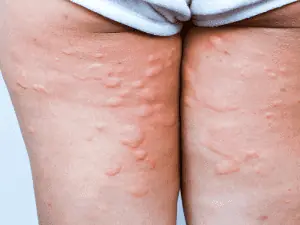
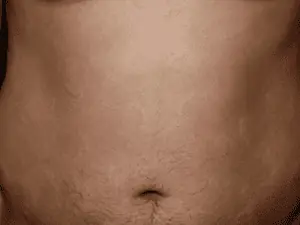
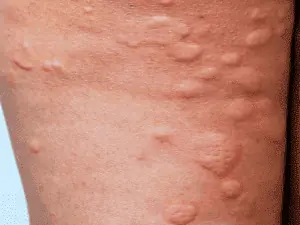
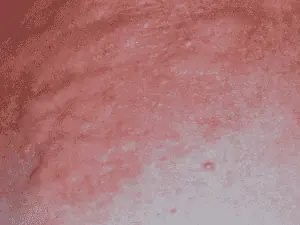
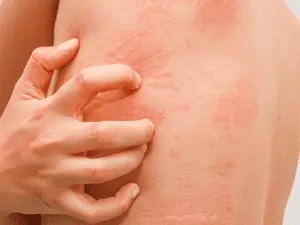
WHAT IS IT LIKE TO HAVE HIVES?
Hives are usually very itchy which can be a source of much frustration. In chronic cases, the symptoms are often worse in the evenings which can affect quality of sleep. If symptoms are severe it may also affect a person’s ability to carry out simple activities of daily life or work. Some people also find the physical appearance of hives distressing.
Hives are usually caused by an allergic reaction. Triggers can be identified which often include allergies, environmental temperature changes, pollen, insect bites, animal fur, emotional stress and food. Even though the rash of urticaria is identical in appearance to that caused by an allergic reaction, in most cases no obvious cause can be found. This is classed as ‘idiopathic urticaria’. Hives can also be experienced as a result of stress, tight clothes, exercise, illness or infections.
People who have allergies are more likely to have hives and other health conditions may make you more vulnerable to developing hives.
HOW CAN HIVES BE TREATED?
Most cases of acute urticaria get better without treatment and the symptoms can be effectively treated with antihistamines. For long-term urticaria the treatments aim to relieve symptoms rather than act as a cure. Identifying potential triggers is an important first step though usually a specific offender cannot be found.
Available treatments include antihistamines, short courses of steroid tablets and in very severe, chronic cases medications to dampen the body’s immune system (such as ciclosporin) can be beneficial. Our urticaria specialists in london can offer effective treatment to patients to help control your symptoms.
FREQUENTLY ASKED QUESTIONS
HOW CAN HIVES BE ALLEVIATED AT HOME?
If you are suffering from a hives rash, the following can help to alleviate symptoms:
- Put a cold compress on the rash
- Take a cool bath
- Apply aloe vera
- Avoid irritants
- Avoid scratching the rash as this can cause them to spread and become more inflamed
HOW LONG DOES A HIVES RASH LAST FOR?
In acute cases, the rash will appear suddenly and then fade away on it’s own, usually within 24-48 hours. In chronic cases of hives, the rash can last for much longer, often weeks or months. If your rash is persisting it is a good idea to see a dermatologist who can assess your condition and advise the most appropriate treatment.
HOW DO I KNOW MY RASH IS HIVES?
Symptoms of Hives include:
- Red, raised patches on the skin
- Rash of red spots
- Itchy rash
- Rash that feels like it is stinging or burning
- Different size and shapes of rash
- Rashes can appear anywhere on the body in both adults and children
WHAT ARE COMMON TRIGGERS FOR HIVES?
Hives can be caused by a trigger that causes high levels of histamine to be realised to the skin, common triggers include:
- Food
- Pollen
- Plants
- Insect bites/stings
- Chemicals (often in cleaning products)
- Latex
- Dust mites
- Heat
- Sunlight
- Exercise/Sweat
- Medicines
- Infections
- Emotional Stress
HEAR FROM OUR PATIENTS
Start Your Journey With Us
Please fill in this form and one of our team will give you a call back to arrange a consultation with one of our expert dermatologists.
WHY TREAT YOUR HIVES AT The HARLEY STREET DERMATOLOGY CLINIC?
Having the right dermatologist is important especially when you have a chronic skin condition that will require ongoing treatment. We want you to feel confident that we’re providing you with the best possible care. We also want you to feel as comfortable as possible with your dermatologist.
The Harley Street Dermatology Clinic specialises in conditions affecting the skin, hair and nails. Our goal is to provide all the care that you need when you’re experiencing these kinds of problems. We want to make it easy for you to access the best quality support for rashes and hives diagnosis in London.
The clinic is conveniently located in Central London, so it’s easy to visit us if you need to see a dermatologist. You will find yourself in a very comfortable and welcoming environment. We have created a relaxing space where you will receive the highest quality of care. We are regulated by the Care Quality Commission, are part of the British Association of Dermatologists and are top rated by patients of Doctify so you can be sure of safe and effective treatment with us.
latest INSIGHTS AND ADVICE

Winter Skin Conditions
Winter weather can take a heavy toll on our skin. We are constantly stepping between the warm, heated rooms indoors and the cold, dry air outside. We also tend to wrap up more at this time of year, which can cause problems if clothes are

Should You Worry About Sun Damage in Winter?
Sun damage isn’t usually a problem in the UK in winter. The UV rays are not usually strong enough at this time of year to cause sunburn, but they can still affect your skin. Sun damage is responsible for many of the skin conditions treated

Are The Effects of Skin Conditions Underestimated?
Skin conditions can be embarrassing, uncomfortable and tricky to treat, but they are often dismissed as minor or cosmetic problems. It’s time we all took our skin more seriously.









